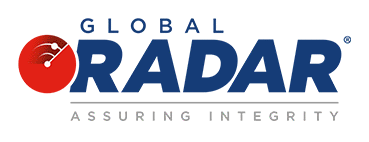In an age where highly sophisticated and complex fraud schemes continue to emerge on seemingly a weekly basis, a classic form of fraud has seen a rebirth of sorts in recent months. It appears that “boiler room” scams are once again being utilized on the global scale – Wolf of Wall Street style – with fraudsters cashing in at the expense of the unsuspecting and ignorant. A boiler room operation involves the use of high-pressure sales tactics to sell stocks, securities and other financial products, often of questionable origin. The groups running these operations will target individuals, often randomly, and try to convince them to invest over the phone. On other occasions, specific demographics of individuals are targeted secondary to being more susceptible or potentially complicit to schemes of this variety. Of course the securities being peddled are usually of low value, which is where a well-versed salesman or sales team in some situations come into play. The salesmen will hype up the stock, peppering the potential investors with positive information about the item being sold, ensuring that the investment is a surefire money-maker, while using a client’s lack of experience/knowledge against them. Usually they will point clients towards “pink sheet” stocks made famous in the aforementioned DiCaprio blockbuster, or towards the over-the-counter bulletin board (OTCBB) stocks not listed on major exchanges and that are poorly regulated.
Boiler room operators tend to rent out small, cheap office space (or work out of their own garage or basement – from which the “boiler room” term gained its origin) and pack this space with a large team of individuals essentially acting as glorified telemarketers. These individuals will spend hours cold-calling numbers right out of established directories of victims of previous scams or even basic telephone directories with the primary goal being to place enough calls where the likelihood of someone falling victim to their ploys rises significantly. Of course, the employees that work in these offices are rarely if ever certified to work in the securities industry to begin with, and therefore have no experience as legitimate brokers. These individuals are generally no strangers to unethical business practices, with the originators of these schemes often being nothing more than career criminals and long-running conmen. To make themselves seem established and more legitimate, they will often claim to have offices in varying, affluent cities or countries and boast of a lengthy history of successful trades/returns that never truly happened. In reality, many only have virtual offices or simple mailing addresses, with maybe a call-forwarding system at best.
These operations often function as modified Ponzi schemes where when victims buy the stocks in question, they generally increase in value given the influx of cash backing the stock(s), which creates the impression that their commitment was both a successful and prudent investment, often breeding additional investment and word of mouth advertising that can attract new investors to the ploys. The problem is that this cycle in unsustainable given the poor fundamentals behind the stocks being sold and ultimately the bubble bursts and the products become worthless again, with the investors losing their often sizeable financial commitments and the fraudsters making off with significant returns. Even when the scheme seems to be drying up, victims who try to get out of a boiler room ploy will either be pressured to not sell their shares or will simply be ghosted by the “investment team.” Once the criminals have lured their victims in and secured their hard-earned funds, they have little incentive to keep playing the game unless there is opportunity to take more.
Despite the simplicity of these schemes, citizens around the world continue to fall victim to similar efforts on a frequent basis. A significant boiler room scam made international headlines in April of 2021 as a former California resident was indicted by a federal grand jury on 15 counts of wire fraud related to a scheme that bilked more than 100 investors out of a reported $14 million. The individual in question, Ronald Shane Flynn, reportedly fled the United States just before his scheme was set to come to fruition approximately 10 years ago, leaving a trail of financial destruction in his wake. Flynn’s scheme centered on a fraudulent streaming media and entertainment business, which he marketed as having multiple offices across the United States and abroad. The company, Vuuzle Media Corporation, allegedly offered what it claimed was an opportunity to invest in the business before its initial public stock offering.1 The indictment alleged that Flynn, who was barred from offering securities in California, operated the scheme remotely from the Philippines, Dubai and other countries while fielding his boiler room with Filipino salesmen. Flynn reportedly pocketed the bulk of the funds invested in order to finance a lavish lifestyle for himself, never paying any dividends promised to investors and never taking the business public. The case remains ongoing given that Flynn has not yet been located by international investigators. If convicted however, he could face a 300-year federal prison sentence.1
Europe is facing a rise in boiler room fraud as well, specifically in Belgium where there has been an exponential increase in companies offering financial services without proper qualifications. The country’s prime financial regulator, the Financial Services and Markets Authority (FSMA) has issued a public warning about this sudden surge, identifying scammers pushing shares in three specific companies: Bruchkaus Quist, Daltium, and EMW Capital. “The above companies are not authorized to provide investment services in Belgium,” stated the FSMA in a press release on these developments. “The FSMA therefore strongly advises against responding to any offer of financial services made by the companies listed above and against transferring money to any account number they might mention.”2 The FSMA has also issued recommendations to avoid falling victim to common fraud schemes, the most obvious being to be wary of cold calling tactics. It should go without saying that it is unwise to engage with someone offering investments over the phone if you have no previous history with them, and one should never invest their funds into any commodities unless it is known exactly what is being offered is legitimate. The FSMA also says to be on the lookout for requests to transfer money to another country, especially if that country is located in Asia or other potentially high-risk jurisdictions. Investors should always perform their due diligence on their brokers and look at their contact information as well office location and other key details often available on the web for anything potentially suspicious.
Citations
AP. “American Charged with $14m Boiler Room Scam.” Arab News, Arabnews, 8 Apr. 2021.
Hope, Alan. “Financial Watchdog Warns of New Appearance of Old Type of Fraud.” The Brussels Times, 29 Apr. 2021.

